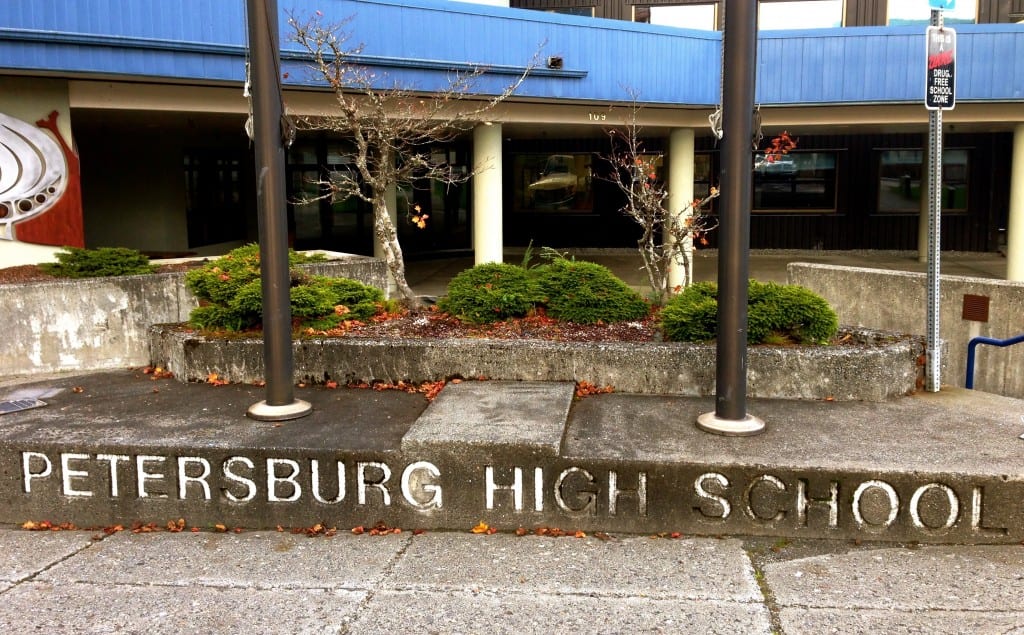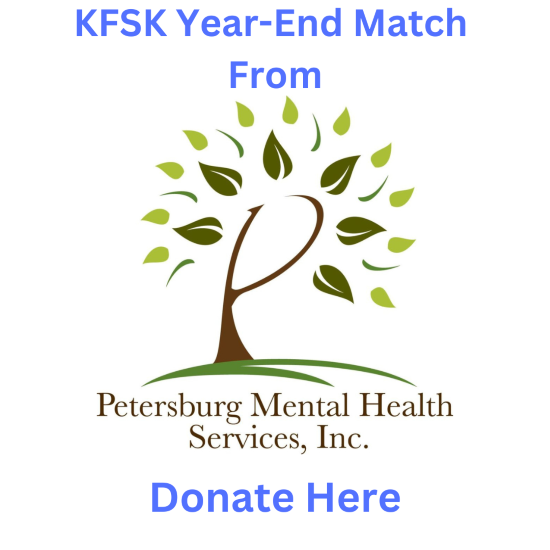
The Petersburg School Board is hearing some negative feedback about the block schedule at the high school this year. The schedule has students attending fewer but faster-paced classes, which is supposed to help reduce potential exposure to COVID-19. But as Angela Denning reports, some students say it is too fast paced for good learning.
This year high school students have four periods a day instead of seven. Two of the four classes are longer “block classes”, which run an hour and a half instead of just an hour. Math and other block subjects went from being year-long classes to a semester long.
The whole idea was to keep students from mixing in too many classes during the pandemic but not everyone thinks it’s working well. The school board has heard some complaints from high school students who say the block classes are too fast paced.
“Me personally, I’ve kind of always struggled with keeping a good grade in math so I’ve kind of been having a hard time this year,” said junior Evelyn Anderson. She spoke at the last school board meeting through the video conference. She said her geometry class is taking a chapter test about once a week and it’s a struggle to keep up.
“If you don’t do well on a math test you spend a day or two going over what you got wrong, correcting, and then still trying to keep up with the new chapter, with the new curriculum that you’re learning, which includes an assignment every day and a chapter test within the next few days,” Anderson said.
Anderson says it’s not just students struggling with the shortened math classes. For some it’s other subjects. She says she’s heard from many other students who feel it’s “extremely stressful”.
The school board also read a letter out loud from another student, junior Chase Lister, who also said the block classes are too fast paced. His letter says he understands the safety reasons for having fewer classes at once but it’s doing more harm than good.
“Even with more in-class time in these semester courses, it is a lot harder to keep up and I don’t feel like I’m learning as much as if I could if we were going slower,” Lister wrote.
Principal Rick Dormer says he understands the longer classes, called blocks, are a challenge for students. He says it’s just a triage situation to keep kids safe.
“This is not our dream schedule long term,” Dormer said. “It is condensed, it’s intense learning, it’s going really fast, it’s finishing early. Personally, one of my biggest troubles with that is that is our fishing kids and we get them caught up and they’ve been fine but if anyone needs to do anything, I mean if you need to go for a week to go moose hunting, which is a really cool thing to do with your parents, it puts you behind quite a bit compared to what it used to, you know.”
Dormer says both the students and the teachers are having to work harder this year. He says he agrees with what a teacher wrote in a survey about the current schedule. He read the quote to the board:
“The barrier to student learning is not due to instruction, instead it is due to the fast paced nature of the content and the ability of students to take in a year’s worth of content in a semester,” Dormer read outloud.
School board member, Cheryl File, says she’s had a lot of calls from parents concerned about the math classes.
“I think the teachers are great, I don’t think that’s the problem,” said File. “I think that excellent students are failing and that’s not acceptable to me and I want to know how to fix it.”
The most challenging block classes seem to be Alegbra II and Geometry. Dormer says even though students are struggling, the data shows that they are getting similar grades as they have been in past years, at least now that the school is in the green status. Grades improved after the first month of school, when students moved to full-time in-person learning. Dormer says there’s no easy answer. They are looking at student’s grades weekly and trying to respond quickly when they see a problem.
“How do we keep kids safe and limit the time at school and the exposure while also not trashing their transcripts because these classes are challenging in blocks,” he said.
Board member, Jay Lister, offered up the idea of stretching out the class into next semester using a reading block for math if needed.
“So your math classes would be actually a full year,” said Lister. “They can slow down knowing they’ve got next semester–even a shorter period–but next year they can pace themselves a little more.”
Dormer said that could be possible. He says it would be hard to change the class schedule before the next semester in January.
Superintendent Erica Kludt-Painter mentioned a possible option of adding some dedicated time on Friday afternoons because students get out of school early on that day.
In the end, the school board decided to schedule a work session in a few weeks with students and teachers to find out what their biggest needs are and what the highest stressers are? The high school will also survey students before the work session.
Dormer says some positives have been identified with the longer blocks such as students spending more time with the same teachers, building those relationships as well as with their fellow classmates. He says the longer classes are also ideal for labs and project based learning, like some science classes.
Local resident Matt Pawuk (who is the brother of School Board President, Sarah Holmgrain) is offering free math tutoring for high school students. He’s offering free tutoring Sundays, Tuesdays, and Wednesdays 7–8:30 p.m. at Petersburg Properties downtown. Masks will be required.











